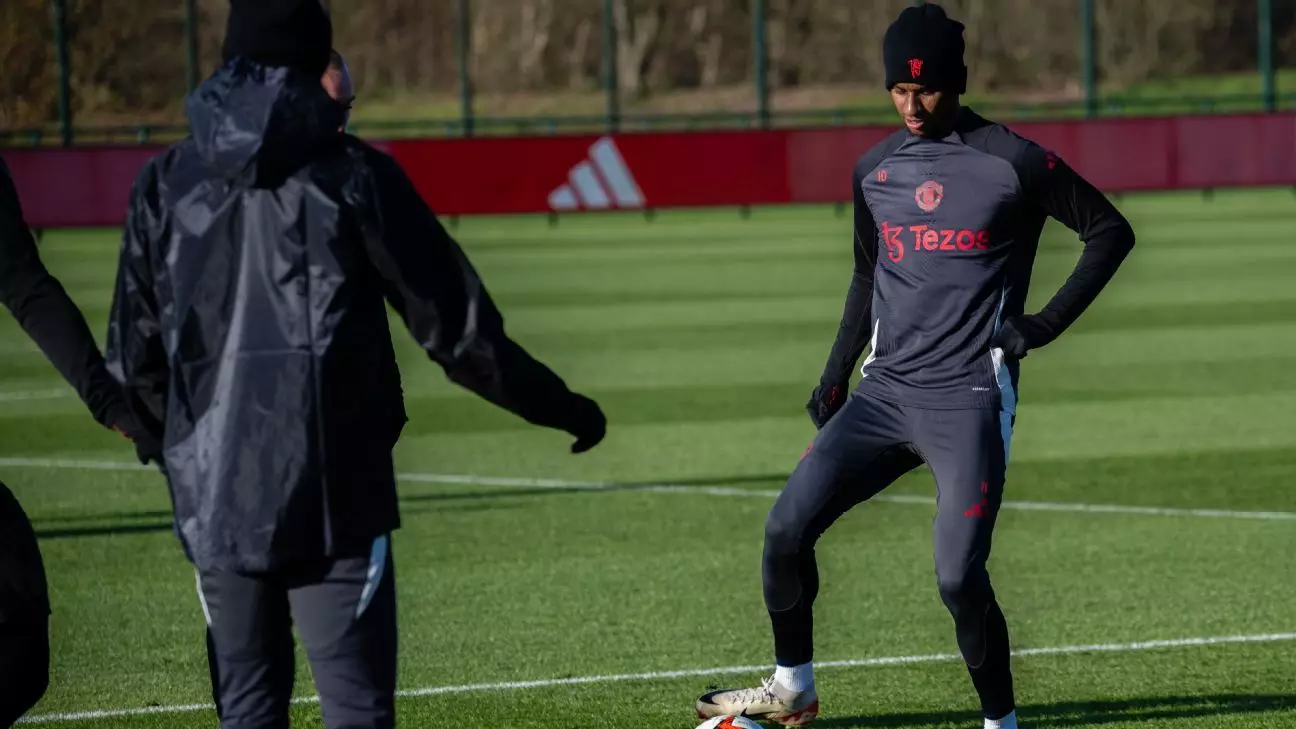Marcus Rashford, the highly talented forward for Manchester United, finds himself in an unexpected predicament as head coach Ruben Amorim has sidelined him for recent matches against formidable opponents such as Manchester City, Tottenham, and Bournemouth. This strategic exclusion has sparked discussions among fans and analysts alike, with many questioning the reason behind Rashford’s lack of participation in crucial fixtures. Amorim’s decision, however, seems to stem from Rashford’s underwhelming performances in training rather than his controversial comments about wanting to leave the club.
A Direct Call for Improvement
Amorim’s remarks highlight a clear expectation for Rashford to elevate his performance and commitment to the team. The coach has emphasized that clear communication is crucial, stating, “I speak with him every day… not about the interview but about the performance.” This suggests that the focus is on Rashford’s day-to-day contributions rather than off-the-pitch musings, indicating that his status as a talented player comes with the responsibility to consistently demonstrate that talent on the training ground and during matches. Amorim’s stance reveals a deliberate intention to maintain standards within the squad, reminding players that individual excellence must align with the team’s overall goals.
Following recent defeats, Amorim’s challenge to Rashford is not without its weight; he has urged him to fulfill his potential and take on a more significant role in the team dynamics. “Be the best that he can be,” Amorim articulated, calling for greater accountability from the player. This message resonates not just with Rashford but also serves as a broader reminder to the squad that during challenging times, each member must step up to bolster team spirit and performance. Such is the nature of competition in elite sports, where individual contributions can often dictate the success or failure of a season.
A Coach’s Clarity Amidst Distractions
Amorim has faced numerous inquiries regarding Rashford since the latter’s exclusion from the squad, yet he remains unfazed. He insists that though the media might propagate the narrative of distraction, the reality in training is starkly different. “It’s not a distraction for me,” he asserts, underscoring that both players and staff understand his decisions and expectations. This acknowledgment of internal cohesion is vital, as it fosters an environment where personal accountability and team objectives coexist.
As Manchester United gears up for their upcoming match against Wolves on Boxing Day, it is apparent that the road back for Rashford requires not just compliance but a transformative shift in mindset and performance. Amorim’s approach reflects a commitment to revitalizing the squad’s morale during what he describes as one of the “lowest moments” in the club’s history. Ultimately, the onus is on Rashford to rise to the occasion, embodying the resilience and talent that initially catapulted him into the limelight. This period of self-reflection, performance enhancement, and strategic commitment may prove pivotal in both Rashford’s career and the collective future of Manchester United.


Leave a Reply